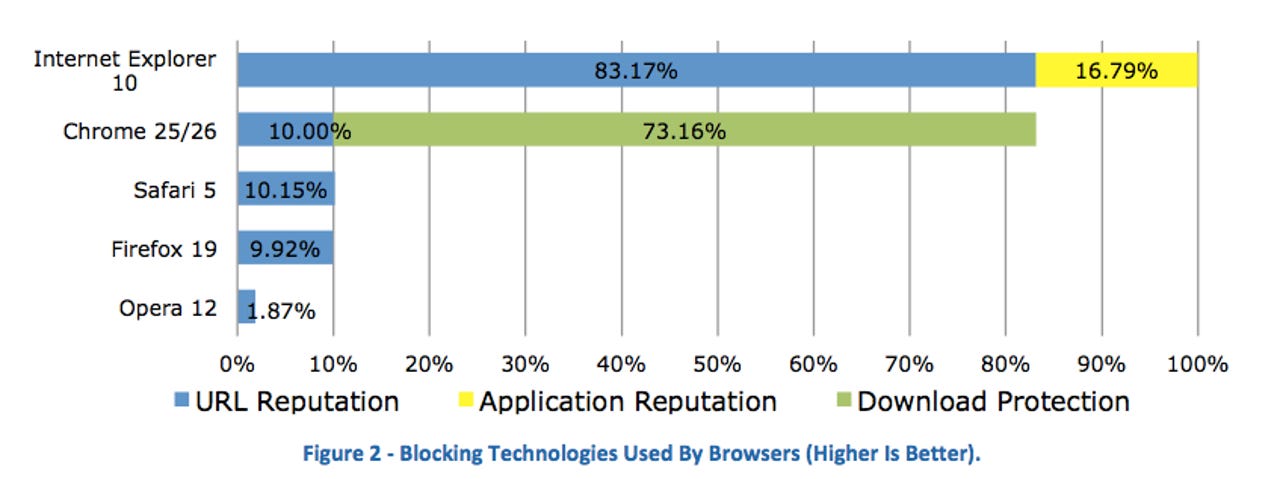IE10 beats Chrome, Safari, Firefox at blocking web malware

Internet Explorer 10 offers better protection against malware hosted on websites than Chrome, Safari, Firefox and Opera, according to a new browser security study.
At 99.96 percent, IE10's malware block rate outperformed Chrome's (versions 25 and 26) block rate of 83.16 percent, according to a study by analyst firm NSS Labs.
The difference between the two browsers however was minor compared to their lead on rivals: Safari 5 blocked 10.15 percent of malware, Firefox 19 blocked 9.92 percent and Opera 12 only blocked 1.87 percent in the study said.
The company tested each browser's ability to block malware from a sample of 754 URLs that were found to be "active and malicious". The company said it removed adware and false positives and tested the URLs against each browser every six hours between 13 March and 9 April this year.
According to NSS, Chrome and IE10 both offered superior defences because of the additional file blockers Microsoft and Google employed in their respective browsers.

Safari and Firefox rely on Google's Safe Browsing API which provides URL filtering. However, Chrome employs a newer version of the API, additional reputation-checking and a file-based malware blocker called Download Protection that are not used in Safari and Firefox, according to NSS.
Chrome's additional file blockers caught 73 percent of malware while the URL reputation system in common with Safari and Firefox blocked around 10 percent, it found.
Microsoft employs its own reputation-based system in IE10 and IE9 called Application Reputation, which determines whether an application is established enough to be trustworthy, and SmartScreen which provides URL filtering. Application Reputation picked up 17 percent of malware while its URL filter picked up 83 percent, according to NSS.
"Both Google's Download Protection and Microsoft's App Rep [Application Reputation] allow users to override browser protecting, however, Google relies on this less reliable protection mechanism nearly four times as often as does Microsoft," Randy Abrams, research director at NSS Labs, said in a statement.
"The net result is that IE10 users are offered superior protection over Chrome users with one quarter the risk of making a bad download decision. Firefox, Safari, and Opera users are afforded little protection at all by their browsers."